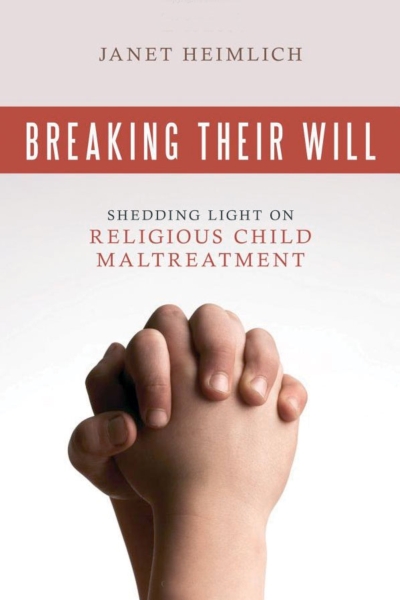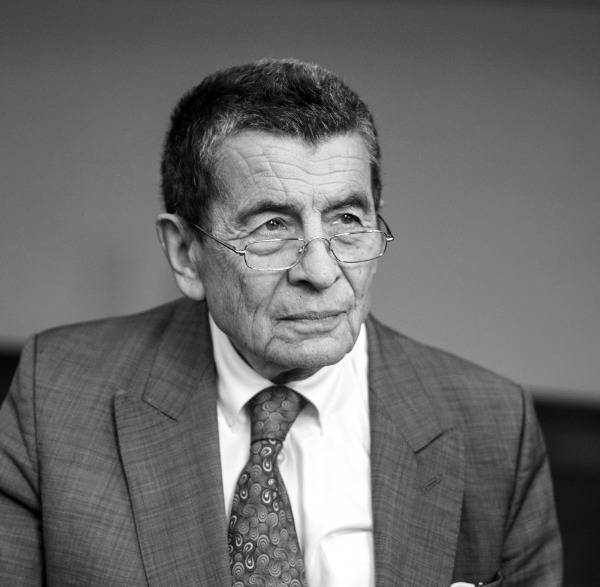 Breaking Their Will: Shedding Light on Religious Child Maltreatment
Breaking Their Will: Shedding Light on Religious Child Maltreatment
When US police found the body of 16-month-old Javon Thompson in early 2007, he was so badly decomposed that identification was near-impossible. It subsequently emerged that the toddler had been starved to death by a small Christian sect who denied him food and water as punishment for his failure to say “Amen” at mealtimes.
This story was one of a litany of cases that inspired Janet Heimlich to write Breaking Their Will, a harrowing account of religiously-motivated child abuse and neglect.
The suffering Heimlich documents is simply overwhelming: the toddlers beaten to death by parents convinced that zealous corporal punishment will save their child from sin. The youngsters dying from preventable diseases after they were denied basic medical treatment in favour of faith healing and “Christian Science”. The children exposed to sexual abuse – and not only within the Catholic Church – by religious communities convinced that a “man of God” could never be guilty of such crimes.
The author's aim is to help end the denial she believes is prevalent both about the extent of such tragedies and their inherently religious character. She also seeks to shed light on how and why the abuses happen. Heimlich suggests that the problems are especially acute within “religious authoritarian” communities, which are characterised by a strict hierarchical social structure, a theology based on fear, and a desire to keep themselves separate from wider society.
“Everything you did was monitored and controlled and everybody reported on everyone else... It was a police state... I had no power over my life or the lives of my children,” a former member of the Fundamentalist Church of the Latter Day Saints told the media after abuses within the 10,000-strong polygamous sect were exposed. In one FLDS community alone, police found evidence of abuse or neglect in 62 per cent of families, including widespread sexual abuse.
“What is happening here is as bad as anything I’ve seen in the world,” commented one Senator at a subsequent Congressional hearing. “Children and families who have been denied basic human rights... It is difficult to understand how this can occur in the United States”.
Yet Heimlich suggests that such cases may not be so surprising. The United States, she points out, is one of only three countries in the world (the others being Somalia and South Sudan) that has chosen not to ratify the UN Convention on the Rights of the Child. This follows a sustained lobbying campaign from religious groups who fear that the treaty's requirement that states intervene to promote young people's “best interests” would limit the freedom of parents to beat and home-school their children.
Heimlich is at pains to stress that religion, when done right, can be enormously beneficial, and that no faith has a monopoly on abuse and maltreatment. But from the evidence she presents it's difficult to avoid concluding that certain types of abuse are peculiarly prevalent within Christianity.
Those whose parents hold the Bible to be infallible seem destined for an especially raw deal. In an illuminating chapter, Heimlich points out the sole mention of children in the Ten Commandments is the threat that God will punish the descendants of “them that hate me... unto the third and the fourth generations”. The Book of Isaiah also endorses slaughtering youngsters for their parents' crimes, spelling out that the children of sinners “shall be dashed to pieces before their eyes”. In Kings, 42 children get torn apart by a wild bear after making fun of the prophet Elisha's bald head. And in a passage that makes “Tiger Mom” parenting look positively tame, Deuteronomy recommends that disobedient and drunken youngsters be taken before the city elders and stoned to death.
“Withhold not correction from the child,” the Book of Proverbs tells us. “For if thou beatest him with the rod, he shall not die. Thou shalt beat him with the rod, and shalt deliver his soul from hell.”
Devout parents have embraced this instruction to such a degree that for a while it was possible to order a specially-made “Biblical rod” from an online company promising a “chastening instrument... perfectly suited for the loving correction of your child.”
Heimlich quotes in lurid detail from a series of creepy faith-based parenting books. Failure to use “the rod” in child-rearing “is an indictment against God himself,” says Michael Pearl in To Train Up A Child. “The spanking should be administered firmly,” writes Jack Ryles in How To Rear Children, “It should be painful and it should last until the child’s will is broken... until the child is crying, not tears of anger but tears of a broken will.”
Some families have taken these ideas to deadly extremes. In 2010, seven-year-old Lydia Schatz died after being whipped with plumber's line while her mother and father took turns holding her down. Fatal beatings have also been handed out during prolonged “exorcisms” by parents convinced that their children were possessed by demons.
More commonly, the author suggests, religiously-motivated violence can cause lasting emotional damage. In 2005, one woman who had suffered regular “spankings” as a child, Bethany Fenimore, wrote an open letter to Roy Lessin, whose teachings her parents had followed, about the ongoing psychological effects: “Should just one parent spare their child [what] I endured... my pain will have more meaning than it does now.” Lessin never replied.
A recurrent theme of the book is power – the basic power relationship between parent and child, the power of a religious leader to persuade parents to set aside their natural feelings and impose harsh, faith-based child-rearing methods, the power of priests and pastors to evade scrutiny and cover up their abuses and, perhaps most shocking, the power of faith organisations to deny victims protection by using their political influence to secure “religious exemption” rules within child abuse legislation.
Around 30 US states currently have laws granting parents immunity from prosecution for denying medical treatment if they do so for religious reasons – even, in some states, where the child dies as a result. These exemptions largely came about, Heimlich says, through the lobbying of the Christian Science Church, whose members shun conventional medicine in favour of prayer.
According to some estimates, hundreds of children across the US have died in faith healing cases since the 1980s, with a dozen more dying each year. In one Oregon Pentecostal sect, the Followers of Christ, the state's medical examiner has found a death rate among children around 26 times that of the wider population - a stark, if tragic, indicator of the difference made by modern healthcare.
Religious groups have also been active in lobbying against attempts to lengthen or abolish the statute of limitations within which child molestation victims can sue their abuser. Shockingly, as recently as 2008, the Catholic Church was aggressively mobilising its members to defeat New York State's Child Victims Act, which would have allowed abuse victims an additional five-year window in which to pursue legal action. Given how long it can take for victims to summon the courage to come forward, a short time limit effectively guarantees that thousands of crimes will never be brought to light.
Heimlich calls for the removal of all such limits, and the repeal of the remaining “religious exemptions” in child abuse legislation. But she also urges a more profound shift in attitudes, towards both children and religion. Heimlich argues that authoritarian religious communities are inherently harmful to young people, and that this must be acknowledged. “It is critical that parents learn to recognise this phenomenon and find more tolerant, compassionate religious communities ... in which to raise their children.”
While Breaking Their Will largely focusses on the United States, the recent killing in London of a young child accused of witchcraft reminds us that there is no cause for complacency here. As our government seeks to give faith groups a greater role in our education system, and churches press for more legal exemptions from equalities legislation, this book is a timely reminder of the harm that can be done when the power of religious institutions goes unchallenged and under-scrutinised.

